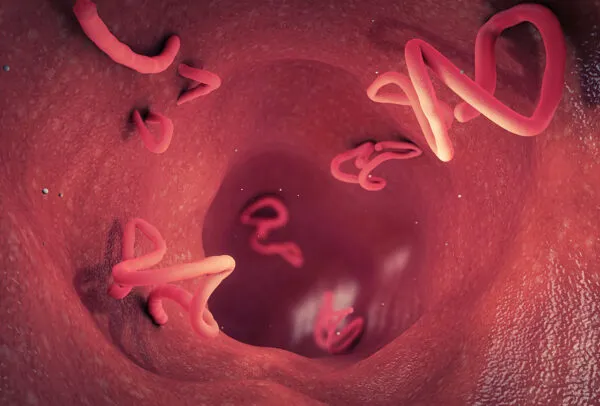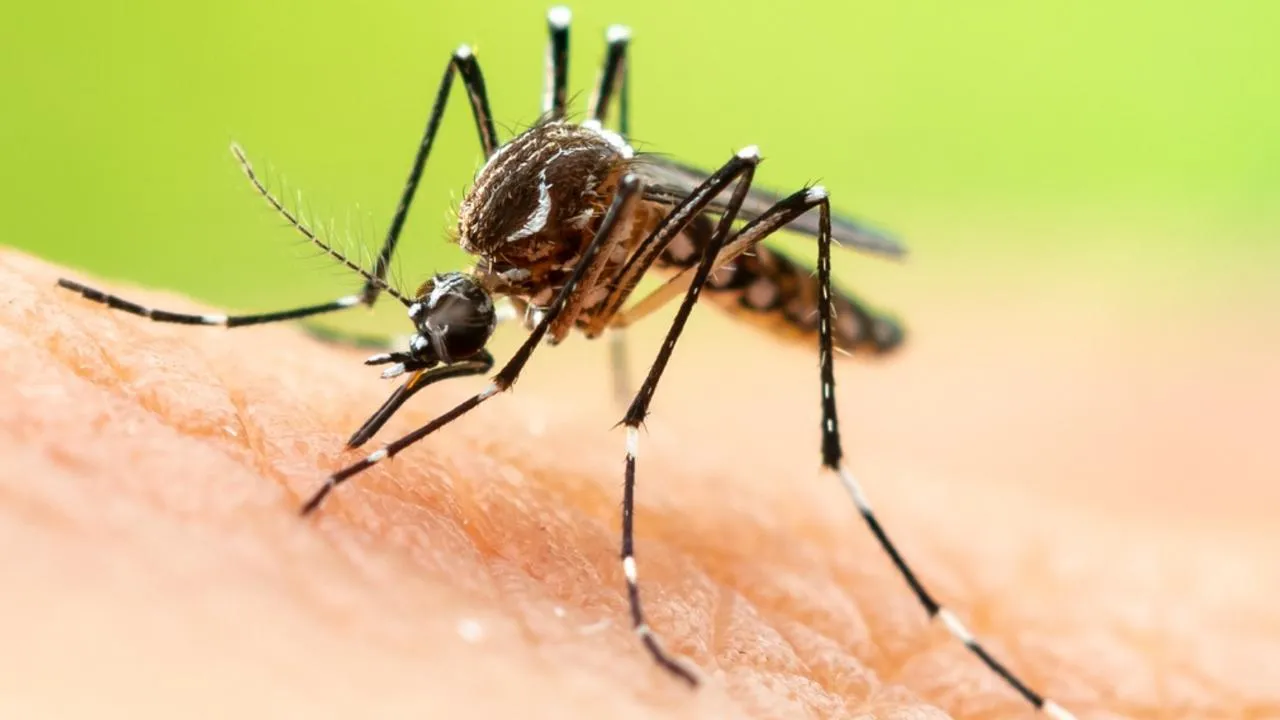A promising new treatment for intestinal worms has emerged following a groundbreaking clinical trial conducted by the STOP consortium, led by the Barcelona Institute of Global Health (ISGlobal). The trial tested a combination tablet of albendazole and ivermectin, which proved to be more effective than albendazole alone in treating Trichuris trichiura and other soil-transmitted helminths (STH). The research, published in The Lancet Infectious Diseases, highlights an important advancement in the control of neglected tropical diseases (NTDs), affecting approximately 1.5 billion people globally.
Understanding Soil-Transmitted Helminths (STH)
Soil-transmitted helminthiases (STH) are a group of parasitic worm infections that are transmitted through contaminated soil or water. The four primary types of helminths responsible for STH are Ascaris lumbricoides (roundworms), Trichuris trichiura (whipworms), and the hookworms Ancylostoma duodenale and Necator americanus. These parasitic infections are particularly prevalent in regions with poor sanitation and hygiene, including parts of Latin America, sub-Saharan Africa, and Asia.
STH have wide-ranging impacts on human health, causing malnutrition, developmental delays, cognitive impairment, and in some cases, death. They also significantly affect women of reproductive age and children, as their developing bodies are especially vulnerable to the negative effects of these parasites.
Current Strategies for Controlling STH
The control strategy for STH primarily relies on periodic mass deworming programs using albendazole, which is highly effective against roundworms. However, its effectiveness against other types of worms like T. trichiura has been waning in recent years, likely due to the development of drug resistance. Furthermore, albendazole does not work well against Strongyloides stercoralis, another type of helminth infection that has become an increasing concern in global health.
The new co-formulated tablet, which combines albendazole with ivermectin, offers a promising alternative. Ivermectin, traditionally used to treat a variety of parasitic infections, has shown strong effectiveness against T. trichiura, and when combined with albendazole, it enhances the efficacy of deworming treatments. Ivermectin is also highly effective against S. stercoralis, making this combination tablet a game-changer for comprehensive STH control.
The Clinical Trial: ALIVE Study
The clinical trial conducted in Ethiopia, Kenya, and Mozambique, known as the ALIVE study, tested the new fixed-dose combination (FDC) of albendazole and ivermectin on school-aged children (5 to 18 years) who were infected with T. trichiura, hookworms, or S. stercoralis. The children were divided into three groups to receive different treatment regimens:
- Group 1: A single dose of albendazole.
- Group 2: A single dose of the FDC (FDCx1).
- Group 3: Three doses of the FDC administered over three consecutive days (FDCx3).
The primary goal of the trial was to assess the safety and efficacy of the FDC, and the results were promising, demonstrating that the combination therapy was not only safe but significantly more effective than albendazole alone.
Phase I: Ensuring Safety
The initial phase of the trial focused on assessing the safety of the combination therapy. A small group of participants was monitored for potential adverse effects, especially the safety of higher-than-usual doses of ivermectin. No serious adverse effects were observed, and the side effects were similar to those seen in the albendazole-only group. This allowed the trial to move to Phase II, where the larger sample of 4,353 children was treated, and efficacy could be measured.
Higher Efficacy Against T. Trichiura and Hookworms
When evaluating the effectiveness of the treatment, researchers used cure rates—determined by the absence of eggs in stool samples post-treatment—and the reduction in the number of eggs in stool samples before and after treatment.
For T. trichiura, the FDC was far more effective than albendazole alone, with cure rates of 97% for the three-dose regimen (FDCx3) and 83% for the single-dose regimen (FDCx1). In contrast, albendazole alone showed a cure rate of only 36%. For hookworms, the FDCx3 regimen achieved a cure rate of 95%, while the FDCx1 regimen showed similar results to albendazole (79% and 65%, respectively).
Though the sample size for S. stercoralis was too small to definitively assess efficacy, existing evidence suggests that ivermectin’s effectiveness against this parasite would make the FDC an ideal solution for controlling S. stercoralis as well.
Reducing Drug Resistance and Enhancing Mass Deworming Programs
A key advantage of the FDC is its potential to reduce the risk of drug resistance. Combining two drugs with different mechanisms of action—albendazole and ivermectin—reduces the likelihood of parasites developing resistance to either drug. This combination is especially valuable in regions where STH resistance to albendazole is emerging, as it offers a more reliable treatment option for at-risk populations.
The simple formulation of the FDC, in a single tablet, offers logistical benefits for mass deworming programs. It does not require dosing adjustments based on a child’s weight, making it easy to distribute and administer in large-scale campaigns.
Moving Forward: Scaling Up for Public Health Impact
The trial results indicate that the FDC could dramatically improve the effectiveness of mass deworming efforts. However, the next step is conducting larger-scale studies, such as the ongoing trial led by STOP2030, to further evaluate the safety and feasibility of this treatment in the context of mass drug administration programs.
For individual treatment, the three-day FDC regimen (FDCx3) shows superior efficacy and could be used in cases where treatment failure is common or for high-risk individuals. However, for mass deworming efforts targeting entire populations, the single-dose regimen (FDCx1) may be the most practical and cost-effective solution.
Child-Friendly Formulation
The child-friendly formulation of the FDC—a mango-flavored, orodispersible tablet—has proven to be highly accepted by children. This is a critical factor in ensuring that deworming programs are successful, as children in endemic regions are often the primary targets of these interventions. The palatability and ease of administration of the tablet will likely improve participation rates in these programs.
A Step Forward for Neglected Tropical Diseases (NTDs)
The new albendazole-ivermectin combination therapy represents a significant breakthrough in the fight against neglected tropical diseases. With over 1.5 billion people affected by STH, the introduction of this co-formulation could help reduce the burden of these parasitic infections, particularly in resource-limited settings.
“By effectively treating a wide range of parasitic infections with a single, easy-to-administer pill, we can make significant strides toward achieving global health goals,” says Jose Muñoz, project leader and ISGlobal researcher.
The findings of the trial also have implications for the broader strategy of controlling NTDs, as they highlight the importance of combining existing treatments and leveraging new drug formulations to combat disease transmission. With the ongoing challenges of drug resistance and the need for scalable solutions, this new combination therapy is a promising tool in the global health toolbox.
The promising results from the clinical trial of the albendazole-ivermectin combination tablet offer a new hope for controlling soil-transmitted helminths, including Trichuris trichiura, hookworms, and Strongyloides stercoralis. The ease of administration, improved efficacy, and potential to reduce drug resistance make this treatment an important advancement in public health. As the next steps involve further trials and scaling up for mass deworming, this treatment has the potential to revolutionize how we approach STH control and contribute to the long-term goal of eliminating neglected tropical diseases worldwide.























